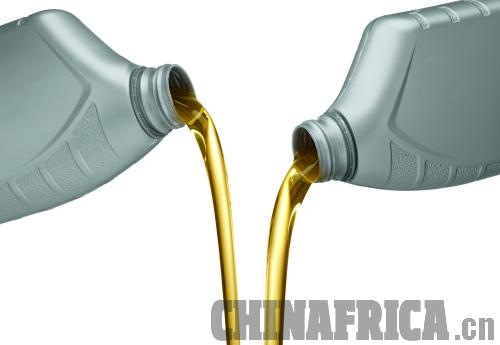| 
China's UNIPEC Asia Co. Ltd. will buy up the entire oil share from Ghana's Jubilee field for the next 15 years in a commercial agreement entered into by the government of Ghana. Under the agreement, the West African nation will be supplying China with 13,000 barrels of crude oil daily to pay for a $3 billion loan granted to Ghana by China under a Master Facility Agreement with the China Development Bank.
The Ghanaian parliament gave its assent to the agreement in February 2012 under the leadership of the Deputy Speaker of Parliament Edward Doe Adjaho. The bulk of the loan has been earmarked to develop infrastructure in Ghana's key industrial western region. According to the minority in parliament however, going by the current oil prices, Ghana will be paying $6.4 billion to the Chinese for the $3 billion loan or give away 750 million barrels of the nation's crude oil to one company for 15 and a half years. They have therefore said that the commercial agreement between the Ghana National Petroleum Corp. (GNPC) and UNIPEC Asia Co. Ltd. is a rip-off.
Collateralization claim
Ghana's former Attorney-General and Minister of Justice Joe Ghartey and also the MP for Esikadu/Ketan in the western region has said that the agreement was in violation of section 18 (7) of the Petroleum Revenue Management Act, 2010 (Act 815), which stipulated that the nation's oil should not be collateralized for more than 10 years.
Apart from the minority who is against the loan agreement, many Ghanaians and analysts are condemning it, saying that the terms of the agreement are unfair. They have argued that by the terms of the agreement, the interest on the loan alone would be almost $5 billion and while it benefits China, it isn't good for Ghana.
A U.S.-based Ghanaian professor of Economics at American University and President of Free Africa Foundation, George Ayittey, who came up with the above figure, is of the opinion that the deal is bad for Ghana.
The Executive Director of the Danquah Institute Gabby Asare Otchere Darko has intimated that the government of Ghana, which contracted the $3 billion Chinese loan, also seems not to factor in national and global events that could affect the future price of crude oil. He cited the financial health of major trade partners in Europe, the United States and Asia; global economic growth projections (because it affects demand for energy), and market analysis for alternative energy sources. Not forgetting conflicts in oil producing countries such as the Boko Haram in Nigerian and unrest in the Middle East.
Bright Simons, Director of Research at an Accra-based think-tank, has also said that per the terms of the contract, the loan will be disbursed not in bulk but in tranches over a five-year period, which further favors China. He also indicated that the loan is meant to develop some infrastructure under the Ghana Shared Growth and Development Agenda (GSGDA), but under the agreement it will be built with Chinese construction workers, not Ghanaian workers. This means that the loan will create work for China without Ghanaian workers benefiting and this is happening at a period when Ghana's unemployment rate is hovering around 11 percent according to a 2000 estimate.
|